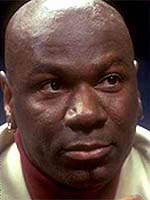
Ways of Approaching Things Fall Apart
Achebe's Intent: To Present an Africa from the inside, reflective of
a long history of society (customs, religion, literature, governance, social
structure).
Achebe is Conscious of his audience: He constructs his tale with attention to
the western ear, the western style. Particularly the technique of centering
the novel around specific characters
Conscious of audience: He constructs his tale with attention to the western
ear, the western style. Particularly the technique of centering the novel around
specific characters.
Terms for study.
I. Colonial. The conditions surrounding the residence in territories occupied
as colonies. In the case of Nigeria, it is Great Britain. The colonial is often
employed to describe the conditions under which the occupying force lived, and
how the natives lived, and the interaction between the two.
II. Post-Colonial. Denotes the kind of life under the new governments after
the departure of the occupying colonial forces. Definitely not the same as pre-colonial
life, seeing as everything has changed. Often marked by corruption, a sense
of inferiority, a sense of attempts to assimilate. The effects of the dominant
language left behind.
III. Indigenous. The choice for this section. We understand this as the customs,
practices, and beliefs of a people who are native to a land that has become
colonized and transformed. While some scholars don’t, I would insist that
indigenous literature would have to bear some mark of the indigenous culture—not
simply be written by people that would be identified as belonging to this culture.
African, Australian aboriginal, native American, South American Indian, etc.
.
I. Anthropological and Specifically African elements:
Wrestling as the form of sport which is also the
measure of a man.
The eating of locusts. (Sun-dried, drizzled with
melted garlic butter and some onion salt. Accompany with a off-dry white, like
a Viognier or an Alsatian Pinot Gris).
Use of Folklore, fable to impart wisdom. 1060--Tale
of the snake-lizard and the baskets of vegetables. (1065-67). Tale of the tortoise
trickster. Also, proverb.
The masculine tales versus the feminine tales
(1045).
Seasonal Customs. The Week of Peace. (1035-36).
Social Customs. The Bride Price. (1055) The uri
or wedding festival.
Customs of governance. Models of Warfare and the
"just war." The role of the egwugwu in deciding tribal disputes. (1063-65).
The spiritual life. The edicts of the oracle.
the mysteries of Agbala and the night with the Priestess Chielo.
Look at the issue of ogbanje and the discovery
of the iyi-uwa (1058). on). Religious—to explain the unfortunate deaths
of children. The medicine man Okagbue—legit?
II. Achebe the Literary Artist--Character driven novel with customs as a backdrop
A. Okonkwo
(Here's my casting for Okonkwo in the film version).

B. Unoka
C. Nwoye
D. Ezinma
E. Ekwefi
F. Chielo
G. Obierka
H. Ikemefuna
Beyond the vision of Africa given us by Achebe, we have something to explain
our hero, Okonkwo, something that we often find in western literature—the
conflict between the father and the son. The values through which each is defined
are African, but can be readily understood by the western reader.
Questions for discussion
Why is Unoka a deficient father and a source of shame to Okonkwo?
What, if any, were his good traits?
How does Okonkwo respond to the legacy of his father?
(Look at the description of his inner self given on 1028).